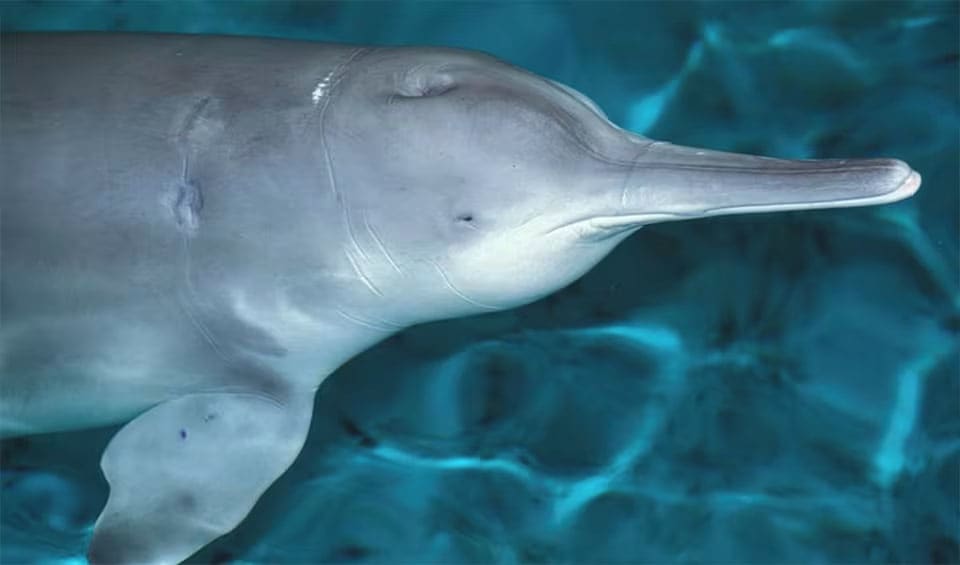Lipotidae – Chinese river dolphin
The 'baiji' were the sole survivors of their family before human activity drove them recently to extinction
Once represented by the Yangtze River dolphin or baiji (Lipotes vexillifer), it holds a poignant place in the annals of conservation history. Emerging around 20 million years ago, the baiji was an ancient species that evolved unique adaptations to thrive in the Yangtze River, one of the world’s most dynamic river ecosystems. Their existence predates significant geological events, such as the rise of the Andes mountain range, highlighting the baiji’s long-standing presence and adaptation to changing environments over millennia.
Like other river dolphins, the baiji had evolved to become almost entirely blind, a trait that allowed them to navigate the often turbid waters of the Yangtze River. Their eyesight was so reduced that they relied heavily on echolocation to communicate, navigate, find food, and maintain social bonds within their pods. This sophisticated sonar system enabled the baiji to detect obstacles, prey, and other dolphins over considerable distances despite the murky waters that would obscure vision.
The baiji’s physical adaptations were well-suited to their aquatic environment. Their bodies were streamlined for efficient movement through water, with a long, narrow beak used for snapping up fish, their primary food source. Despite these adaptations, the baiji could not withstand the rapid environmental changes wrought by human activity in the Yangtze River.
The decline of the baiji was not due to targeted hunting but rather a combination of factors associated with human development and activity. The construction of dams disrupted their migratory routes and breeding grounds, while industrial and agricultural pollution severely degraded their habitat.
QiQi, the last known baiji, whose death in captivity in 2002 symbolized the dire situation of the species, serves as a poignant reminder of the consequences of environmental neglect and the urgent need for conservation action. The loss of the baiji is not just the disappearance of a species but a warning of the broader ecological crises facing freshwater ecosystems worldwide.
Genera in this family
The baiji were the sole survivors of their family before human activity drove them recently to extinction

